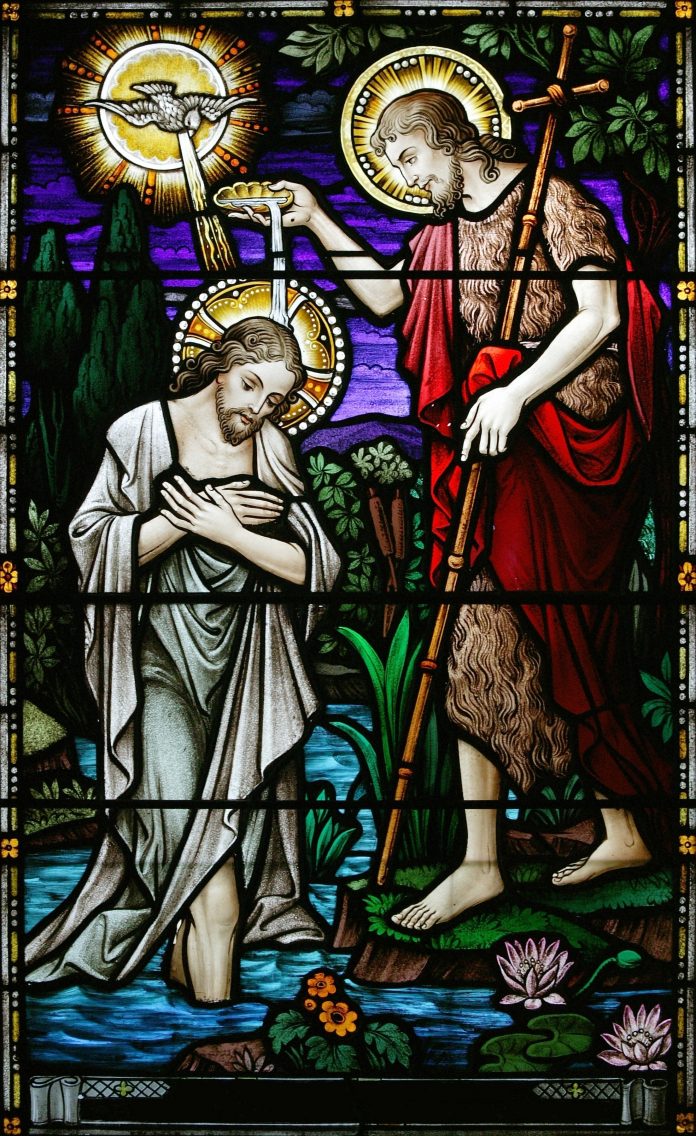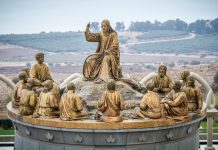
by Sister Alice Ann Pfeifer, CSA
This Complete-A-Project Bible Search Activity is for teacher and students (grades 4-6) working together. The exercise can be completed using the Bible to find the answers to fill in the blanks on the activity page [CLICK HERE]. This Bible Search features a real-life scenario in which names and other details have been slightly modified. This Gospel is from Matthew 5:38-48.
Background
* Verse 38 is from Leviticus 24:19-20: “Anyone who inflicts an injury on his neighbor shall receive the same in return. Limb for limb, eye for eye, tooth for tooth! The same injury that a person gives another shall be inflicted on that person in return.” This Old Testament passage was intended to restrain people from imposing punishments that were more severe than the wrongs committed. God’s people may seek justice but never revenge.
* Jesus goes one step further and prescribes clemency for wrongdoers (punishment that is less severe than the crime committed).
* The ancient Hebrews observed specific laws about clean and unclean forms of bodily contact. For instance, a master could strike a slave only with the back of his right hand. The palm of that same hand was used only to strike a social equal. When following these “cleanliness rules,” it is awkward and difficult to slap a person on both cheeks using the back of the same hand.
* So why does Jesus recommend offering the other cheek? One school of thought says that he is encouraging his followers to meet violence with nonviolent resistance. If a fellow believer treats you as an inferior, challenge that person with a silent gesture that says, “Strike the other cheek, too, and in doing that, you will claim me as your equal.” Jesus is saying to look for smart and nonviolent ways to respond to violence and mistreatment.
* Jewish clothing consisted of a tunic, sash, and cloak. Sometimes an article of clothing could be demanded as collateral on a loan. Accepting both a borrower’s sash and his cloak, however, effectively disrobed him—and gazing on an unclothed person violated Jewish law. Again, Jesus is teaching us to outwit our opponents rather than engage in nasty fights.
* In verses 43-48, Jesus goes further yet in his teaching when he asks his followers to love their enemies. Their example is to be the Heavenly Father, who does not dole out his sunshine and rain—the necessities of life—according to the measure of each person’s virtue. Just as God always is generous to everyone, even people mired in sin, so are God’s people always to be generous, even with their enemies.
MATERIALS
* Activity sheet [CLICK HERE], one copy for each student
* Bibles (The Search is based on the New American Bible.)
* Pencils or pens
PROCEDURE
1. Ask the group a few questions about generosity. What is generosity? When is it easy for us to be generous? When is it hard?
2. Read or have volunteers read the set-up on the activity sheet.
3. Write the words EASY and HARD on the board. Ask children to help you list reasons why it may have been easy for Jared to be generous to Kristina and why it may have been hard. Under EASY, you might include: Jared knew he could save more money; Jared was sad about Kristina’s accident; Jared didn’t know if anyone else would help. Under HARD, you might include: Jared didn’t like girls; Jared didn’t know Kristina; Jared was impatient to buy the science kit; Jared was unsure of how Kristina, his other classmates, and the adults in the group would respond.
4. Acknowledge that most people naturally pull together when trouble strikes. At such times, loving our friends, family, neighbors, and fellow citizens becomes fairly easy. But it is never easy to love our enemies. That takes a special kind of generosity.
5. Point out that while Kristina was not a friend to Jared, she also was not an enemy. But what if she had done something mean to him in school the day before? How generous would that have been for him to help her anyway!
6. Using the information from Background, talk about the uneasy relationships that sometimes existed in Jesus’ day between slaves and masters, and between borrowers and lenders. Tell the children to watch for Jesus’ surprising advice to people who have been mistreated when you read Matthew 5:38-48 together.
7. Work together to fill in the blanks for Matthew 5:38-48. Make sure children know the definitions of unfamiliar words.
8. Read the conclusion to the story and brainstorm projects that Jared’s class might do for Make-a-Difference Week at his school.
Answers to Fill-ins: heard, tooth, resistance, cheek, tunic, cloak, service, Give, back, borrow, hate, love, persecute, Father, bad, unjust, recompense, tax, unusual, pagans, perfect
Copyright 2011, Bayard, Inc. All rights reserved. This article is protected by United States copyright and other intellectual property laws and may not be reproduced, rewritten, distributed, redisseminated, transmitted, displayed, published or broadcast, directly or indirectly, in any medium without the prior written permission of Bayard, Inc.
This article was written by the Catechist Staff and appeared in Catechist magazine, January 2011.
Image Credit: Shutter Stock 6709591




